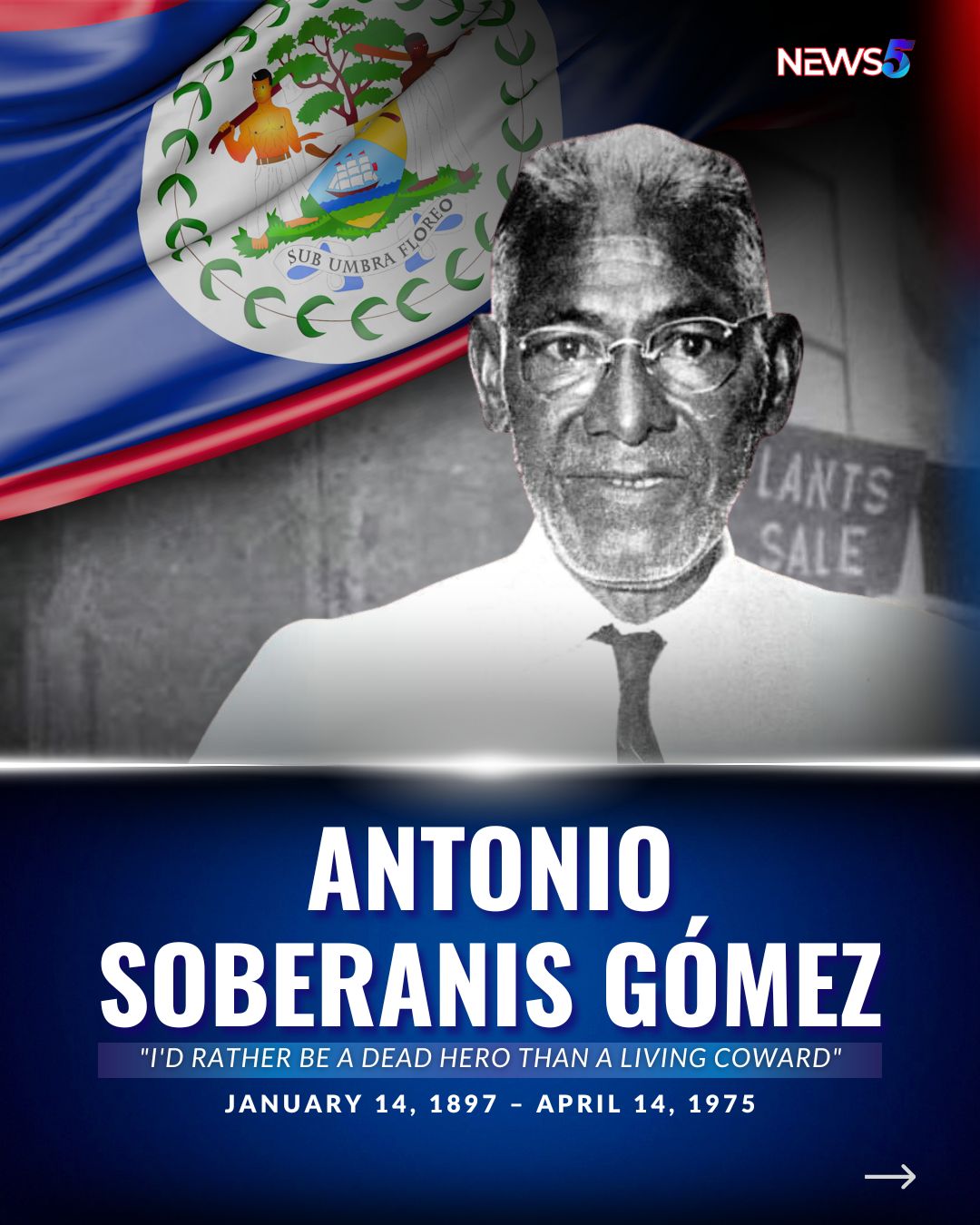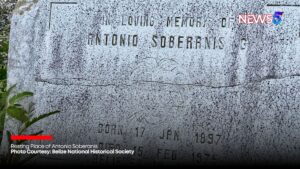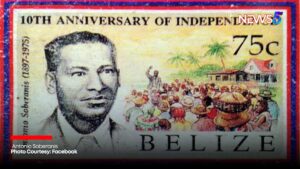Honouring Antonio Soberanis Gómez: The Unyielding Father of Belizean Labour
Antonio Soberanis Gómez, a name synonymous with courage and conviction, stands tall in Belizean history as the driving force behind the country’s labour movement. Affectionately known as “Tony,” he dedicated his life to championing the rights of the working class. He left an indelible mark on Belize’s journey towards social justice and independence.
A Humble Beginning
Born on January 17, 1897, in San Antonio, Rio Hondo, Belize, Antonio was the son of Mexican immigrants who sought a better life in Belize. His early years were shaped by the values of hard work and resilience, which he carried with him throughout his life. After completing his education at an all-boys school in Belize City, Antonio became a barber, opening The Panama Barbershop—a modest establishment that would later become a crucible for political thought and activism.
Championing the Working Class
By the early 1930s, Belize was in the throes of economic despair. The once-thriving mahogany trade was in decline, and the Great Depression, compounded by the catastrophic 1931 hurricane, had left the working class in dire straits. It was against this backdrop that Antonio Soberanis emerged as a beacon of hope. When the Unemployed Brigade—a group formed to address the mounting hardships—began to falter, Antonio’s unwavering resolve came to the fore. With the declaration, “I’d rather be a dead hero than a living coward,” he galvanised the movement, taking up the mantle to fight for fair wages and dignified working conditions.
Founding the Labour and Unemployed Association
In 1934, Antonio, alongside a group of determined individuals, founded the Labour and Unemployed Association (LUA). The LUA became the voice of the oppressed, organising strikes, boycotts, and protests that challenged the status quo. Despite facing repeated arrests and government crackdowns, Antonio’s spirit remained unbroken. Under his leadership, the LUA achieved significant victories, including wage increases, improved employment opportunities, and a stronger political presence for workers.
Service and Continued Advocacy
Soberanis’ commitment to his country extended beyond the labour movement. In 1942, he served in the British military in Panama during World War II. He demonstrating his dedication to the greater good. Upon returning to Belize, he continued his activism, playing a key role in the formation of the People’s Committee political party in the 1950s, which would later evolve into the People’s United Party—one of Belize’s major political forces.
A Life of Legacy
Antonio Soberanis Gómez was more than a labour leader; he was a devoted family man, married to Violet Garbutt and the father of ten children. Even as he pursued his activism, he remained connected to his roots, continuing his work as a barber—a testament to his humility and dedication to his community.
When Antonio passed away on April 14, 1975, at the age of 78, Belize lost one of its greatest champions. Yet, his legacy lives on. In 1991, a bust of his likeness was unveiled at the inauguration of Battlefield Park in Belize City, a lasting tribute to his contributions to the nation’s independence and the rights of its people.
Antonio Soberanis Gómez’s life is a powerful reminder of the impact one individual can have in shaping the course of history. His relentless pursuit of justice and equality remains an enduring source of inspiration for all Belizeans. He is, without doubt, a true hero of Belize.









Facebook Comments